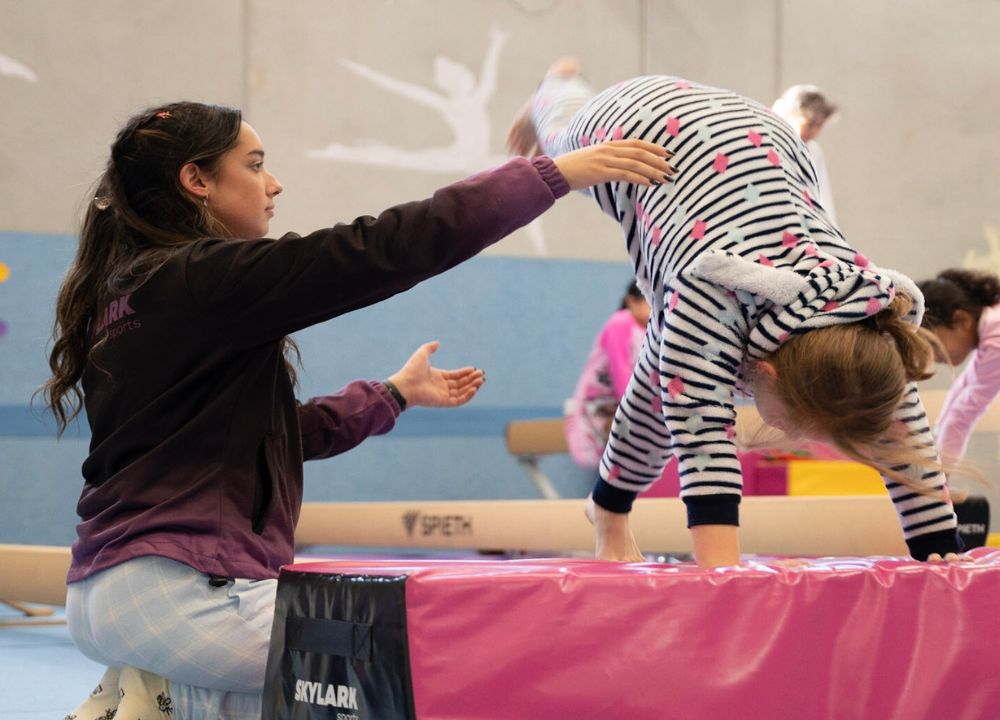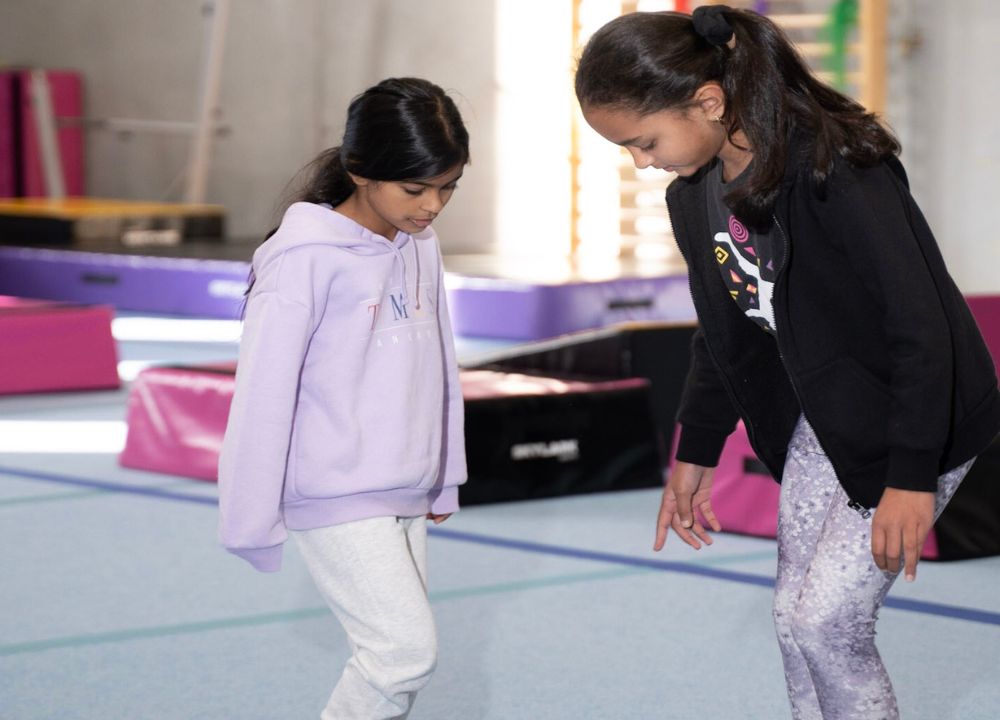Ninja warrior training is an obstacle course that includes several difficulties, like climbing walls, jumping from platform to platform, hanging on ropes, and balancing on small beams. It's an enjoyable and stimulating approach for kids to increase their physical stamina, agility, and self-assurance.
However, kids learning to be ninja warriors could have concerns and anxieties that might hinder them. For instance, they could fear heights, worry about tripping, or feel anxious about failing. Although these apprehensions may be common and natural, it's vital that you, as a parent or carer, assist your child in overcoming them so that they may keep enjoying ninja warrior training.
Parents and other adults who care for children may help them develop into effective kids ninja warriors by being aware of any worries they could have during training.
In this post, we'll look at some techniques and advice to help your kid conquer their worries and develop into a self-assured ninja warrior!

What Are Children Usually Afraid Of?
Parents and caregivers must understand the usual worries that kids could have and the causes of such anxieties. Better Health Channel also mentioned that children may fear things that adults do not. Mocking or pressuring them to face their fears will not help. Instead, take their fears seriously and encourage them to express their emotions.
Here are the common fears that your kids usually face:
Fear of the dark
Young children frequently experience this phobia because they may worry about things they can't see in the dark, such as monsters or other creatures.
Fear of loud noises
Children may experience a fear of loud noises, which can be frightening and overpowering, such as thunder or fireworks.
Fear of strangers
Since they may not know who to trust, it is common for kids to be wary of strangers.
Fear of animals
Due to unpleasant experiences or a lack of exposure, some kids may be terrified of specific creatures, such as dogs or spiders.
Fear of being apart from the parent
Children who experience separation anxiety may become agitated or worried.
Fear of failure
Young children may be concerned about making mistakes or not succeeding in new endeavors.
Fear of heights
Another typical concern that kids may have is a fear of heights, particularly when they are perched up high on a playground or climbing frame.
Fear of falling
Like a child's fear of heights, a fear of falling may also be widespread among young people due to the possibility of injury.
These concerns could appear in several ways when ninja warrior training. A kid who fears heights could experience anxiety when climbing tall walls or balancing on little beams. A toddler scared of falling can be reluctant to swing on ropes or jump from platform to platform. A child terrified of failing can be concerned about failing the course or performing poorly compared to their peers.
Parents and other adults who care for children during ninja warrior training may support them by being aware of these worries and the underlying causes of those fears. Parents and other adults who care for children may assist them in overcoming their concerns and developing into self-assured ninja warriors by promoting open communication and encouragement.
How to Help Your Kids Overcome These Fears?
Parents have an important role in helping their kids in overcoming their worries. Parents can help their children feel more at ease and confident when practicing their ninja skills by offering the support and direction they need by recognizing kids' typical sorts of worries. To foster a loving and safe atmosphere where their kid may face their concerns, parents must remember that children look to them for assurance and direction.
Here are a few tips for assisting your kid in overcoming their concerns while practicing their ninja skills:
Encourage open communication:
Encourage your youngster to talk to you about their worries and anxieties. Let them know it's alright to be anxious or afraid and listen to what they say.
Avoid overly pushing your child:
Challenging your kids is necessary, but you should push them only a little. Introducing new challenges gradually might help your youngster develop confidence without overwhelming them.
Encourage your kid to have a mindset of development:
Teach your youngster to see difficulties not as failures but as chances for development and learning. Help them see that making errors is normal and that they may grow from them.

Importance of a Supportive Environment During Ninja Warrior Training
Boosts confidence
Children feel more secure when facing their concerns and conquering obstacles in a supportive setting. Their improved self-assurance may also affect their academic performance and social connections.
Reduces anxiety
Children who experience anxiety during ninja warrior training may find coping easier in a supportive setting. Children are less likely to feel overburdened and anxious when supported and encouraged.
Enhances performance
By giving children constructive criticism, recognizing their accomplishments, and providing them with chances for growth and development, a supportive atmosphere can raise their performance.
Encourages a passion for the sport
By fostering a good, pleasurable training atmosphere, a supportive setting may aid children in discovering a passion for the activity.
Promotes cooperation and teamwork
Children can learn to work together towards a similar objective by developing cooperation and collaboration among teammates in a supportive atmosphere.
Creates a positive sense of oneself
Providing support and encouragement and recognizing each child's talents and qualities, a nurturing environment can aid youngsters in forming a good self-image.
Improving mental health and well-being
A supportive environment can improve a child's mental health and well-being. It lowers stress and anxiety, fosters a feeling of belonging, and promotes positive social interactions.
Frequently Asked Questions
How may my child benefit from ninja warrior training?
Children who participate in ninja warrior training can get various advantages, such as increased strength, agility, and coordination, enhanced self-esteem, a love of physical exercise, and the development of crucial life skills like persistence, goal-setting, and collaboration.
What are some warning indications that my kid could be anxious while practicing becoming a ninja warrior?
Based on our experience while dealing with a bunch of kids training for gymnastics, reluctance to engage, excessive stress or anxiety, bodily complaints like headaches or stomachaches, and negative self-talk like "I can't do this" or "I'm not good enough" are a few indicators that your child may be experiencing worries during ninja warrior training.
What should I do if my kid is too terrified to try ninja warrior training?
Respect your child's sentiments and avoid exerting undue pressure on them. Start by explaining the basics of ninja warrior training and why it could be enjoyable and advantageous for them. Please encourage them to start slowly by showing them recordings of other youngsters using ninja warrior techniques or having them practice some fundamental movements at home.
How can I support my child's growth mindset?
The idea that skills and talents may be developed through commitment and effort is known as a growth mindset. Encourage your youngster to embrace learning and to see obstacles as opportunities for progress. Please encourage them to create attainable objectives for themselves and compliment them on their efforts rather than on their accomplishments.
Key Takeaways
Parents, coaches, and teammates must work together to support kids facing their concerns throughout ninja warrior training. Children can feel more secure and at ease when they confront new obstacles if adults are aware of common childhood worries, promote open communication, and foster a supportive atmosphere. Parents and coaches may support their children in becoming more motivated and self-assured by setting attainable objectives, encouraging comments, and recognizing little accomplishments.
Additionally, teammates may build a supportive and uplifted community that promotes growth and individual development by cooperating to stop bullying and exclusion. Learning to be a ninja warrior can be an exciting and pleasurable experience for kids. A supportive setting may make it even more fun and fulfilling.

